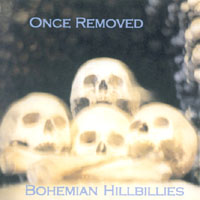Union maid, part 1: Dagley Dagley goes to Circus Circus to represent New York, New York
Once upon a time, passengers on commercial flights were about as likely to speak to each other as commuters traveling on buses or subways: a nod, a muttered "excuse me," that was about it. We don't ignore our seatmates these days, and everybody knows why. The passenger safety brochure that shows where to find the exits and life vests and illustrates "crash position" also advises travelers to get acquainted with the people in nearby seats. So that's just what we did on the plane to Las Vegas last Thursday. There was a group of about a half-dozen young guys from Long Island (pronounced lew-on guy-land), escorting one of their number for an extended bachelor party, which seemed to have begun even before they boarded the shuttle bus from the parking lot. Most everybody on the plane was going to the desert for pleasure, not business, including the couple seated next to me: Ruth and Ted, also from Lew-on Guy-land (names changed to protect whatever privacy they have left; we were flying JetBlue after all). Before takeoff, we shook and howdied, and they explained that they were headed to a family reunion of sorts, with folks coming from all over for a shared vacation. I told them I'd be working pretty much the whole time, as I was on my way to a union meeting.
"Union, huh?" Ted said. "So you're those people who don't want to work."
We had about five hours ahead of us in that winged tube, which at that point hadn't even left the gate. I like to think that if Ted had been sitting next to a person of African descent, he wouldn't have blurted out some bigoted remark about his seatmate liking chitterlings with watermelon. I like to think that if he'd been sitting next to a gay man, he wouldn't have said, "Look, buddy, I'm not interested so don't try anything." I even like to think that if he'd been sitting next to the CEO of a big corporation, he wouldn't have asked the executive why his salary was several hundred times that of an average employee of that firm. But he was sitting next to a union activist, and he seemed oblivious to the rudeness of his remark. I considered, for a split second, how best to answer him, and quickly concluded that hollering, "What!!!??" might not be the best response even though that was the first one that came to mind. Instead, I decided this might be a good opportunity to engage in some of that aforementioned activism.
"Actually, we're the people who do the work," I told him. "In the case of my union, we're all self-employed, because it's a union of freelance writers: the National Writers Union."
"Freelance writers have a UNION?" he asked, the first of many times I heard that question on this trip.
"Yes, we do," I told him. "And we're part of a very big union: we're Local 1981 of the United Auto Workers. Nontraditional workers like us are the fastest-growing segment of the union: doctors, graduate students, adjunct professors, cab drivers, cartoonists, day-care workers -- there are a lot of independent contractors in the UAW."
"Wow, freelance writers," he repeated, shaking his head in disbelief. "If you guys don't stick together, you don't stand a chance."
"Exactly. Especially with the media conglomeration that's going on: almost everything is controlled by 4 or 5 companies."
Poor fellow (and his poor wife, who sat between us). He must have found himself wishing he'd sat next to a Mormon missionary or a time-share salesman instead, but hey, he started it and I was going to finish it. During the course of our journey, he learned that freelance writers are not allowed to engage in collective bargaining like most union members, because we are considered independent businesses and it would be considered an antitrust violation if we banded together to negotiate rates. He learned that while some other independent contractors, such as actors and dramatists, have been exempted from that prohibition by acts of Congress, the Freelance Writers and Artists Protection Act, introduced last year on our behalf by Rep. John Conyers (D-Michigan), died at the end of the term after the Republicans won so big in last November's mid-term elections.
"Have you tried pointing out to the Republicans that you're small businesspeople seeking less government regulation? That sounds like their kind of thing," Ted offered helpfully. I agreed, but I told him we haven't gotten much encouragement from the GOP so far: maybe we'd have a better chance if we were big businesspeople.
Ted and Ruth learned that because we are freelancers, we have to provide our own health insurance, except that we lost our group plan earlier this year and could find no replacement coverage anywhere at any price, as most insurers are discontinuing "association-type" group plans. Now some of our members are covered under higher-priced individual plans, and more of them, especially those with pre-existing conditions, now find themselves among the estimated 40 to 50 million Americans with no health insurance at all and no immediate hope of finding a company that will sell it to them. Even if they do find one that might sell them insurance, it won't cover -- ever -- any of the medical problems they already have. I'm more fortunate than many, because I'm covered under my husband's insurance, although they're still holding up payment for all my bills while they determine whether I might be a child covered on someone else's insurance, or eligible for Medicare. I pointed out to the insurance company that my date of birth would answer that question (I'm 50, too old for the first option, and too young for the second); it's been several months now but apparently math is not their best subject.
My temporary neighbors couldn't believe it when I told them about our campaign against what was then called AOL Time/Warner (they dropped the "AOL" the very next day) and its demand for all-rights contracts, and the other publishers that give longtime freelancers an ultimatum: turn over the rights to all the work you've ever done for us, even if we only paid for first rights, for no extra compensation, or be exiled from the publication and never allowed to write for any of that company's magazines or newspapers again, their articles expunged from the publications' archives.
I told Ted and Ruth about the thousands of freelance writers, most in our BizTech division, whose clients have replaced them with writers in India, the Philippines, Malaysia, or other places where English-speakers are willing to work for pennies on the dollar. They'd already heard about the offshoring of jobs and how that may be the reason behind the "jobless recovery."
"Seems like it would be a threat to homeland security," Ted pointed out. "If somebody writes an instruction manual for software, wouldn't they have to have the software to do it? And wouldn't sending the software abroad be somewhat risky? Most every program has some kind of 'back door' so that developers can fix bugs and install upgrades." I said it seemed that way to me, too.
Ted went on to say that the problem is not people who don't want to work, but people who want work and can't find it, or people who do work and still can't cover their basic expenses. And most of all, he said, the problem is that so many of our nation's decisions are being made by, and for the benefit of, people so wealthy that they never really had to work a day in their lives.
Since he'd been such a sport, and since he'd pretty much taken over my side of the argument, I decided to reward him with some comic relief.
"Want to hear a union joke?" I asked my seatmates. Sure, they said.
"A friend of mine in the Airline Pilots Association told me this one," I began. "A team of negotiators came out to report to the members on the contract they've just hammered out with management. 'It's a pretty good package,' the lead negotiator explained. 'We were concerned about the effects of fatigue on our ability to perform on the job, and it took awhile, but we think we've got something workable. From now on, we only have to work on Tuesdays.'
"The meeting went silent, then the members started murmuring amongst themselves. Finally a member in the back of the room raised his hand to speak.
" 'Um, would that be EVERY Tuesday?' "
The plane began its descent into Las Vegas at that point, and the Captain explained that we needed not only to return our seats and tray tables to the locked and upright positions, but since the cabin crew was also the cleanup crew (to save money and keep fares lower), he asked us to help prepare the cabin for the next group of passengers. Ted and Ruth were eager to begin their vacation, and I was looking forward just as much to the work I'd come there to do. We saw each other a few minutes later at the baggage claim, and we wished each other luck.
posted by Janet Dagley Dagley @5:59 PM
|
23.9.03  |
|




